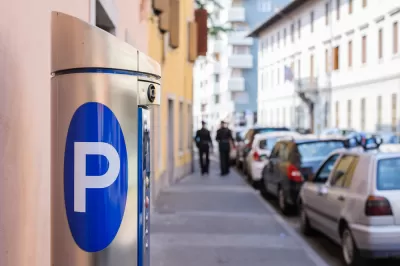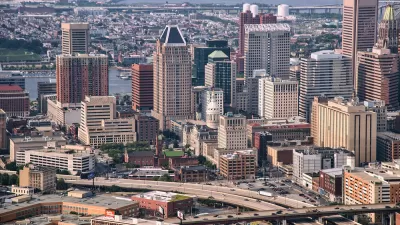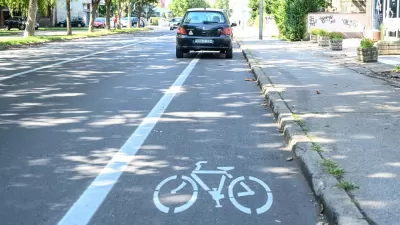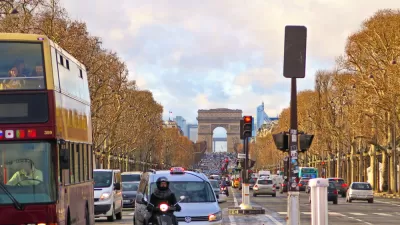Details of the parking and automobile-related revenue generated by the 25 largest cities in the United States reveals a wide range of potential effects arising from a future of self-driving cars.

Governing has released the results of a survey of the 25 largest U.S cities "for revenues that could potentially be hindered by the proliferation of autonomous vehicles."
In all, cities took in a total of nearly $5 billion in fiscal year 2016 from parking-related activities, camera and traffic citations, gas taxes, towing, vehicle registration and licensing fees. That amounts to about $129 per capita for all 25 jurisdictions. The reported data, however, suggests the introduction of self-driving cars could have drastically different effects, with some cities experiencing far greater potential reductions in revenues than others.
As detailed in the article, the difference in how cities collect parking revenue will account for big discrepancies in the potential effect of self-driving cars. Parking fines, parking fee collections, and special parking taxes all figure into the equation. Still, it's likely that the $5 billion figure under reports the total revenue related to automobiles. Sales taxes related to automobile-related purchases and gas taxes are not figured into the survey.
The article presents the data in ten categories for all 25 large cities, as well as specific and detailed insight into parking and automobile-related revenue each of the 25 cities.
FULL STORY: Special Report: How Autonomous Vehicles Could Constrain City Budgets

Planetizen Federal Action Tracker
A weekly monitor of how Trump’s orders and actions are impacting planners and planning in America.

Map: Where Senate Republicans Want to Sell Your Public Lands
For public land advocates, the Senate Republicans’ proposal to sell millions of acres of public land in the West is “the biggest fight of their careers.”

Restaurant Patios Were a Pandemic Win — Why Were They so Hard to Keep?
Social distancing requirements and changes in travel patterns prompted cities to pilot new uses for street and sidewalk space. Then it got complicated.

Platform Pilsner: Vancouver Transit Agency Releases... a Beer?
TransLink will receive a portion of every sale of the four-pack.

Toronto Weighs Cheaper Transit, Parking Hikes for Major Events
Special event rates would take effect during large festivals, sports games and concerts to ‘discourage driving, manage congestion and free up space for transit.”

Berlin to Consider Car-Free Zone Larger Than Manhattan
The area bound by the 22-mile Ringbahn would still allow 12 uses of a private automobile per year per person, and several other exemptions.
Urban Design for Planners 1: Software Tools
This six-course series explores essential urban design concepts using open source software and equips planners with the tools they need to participate fully in the urban design process.
Planning for Universal Design
Learn the tools for implementing Universal Design in planning regulations.
Heyer Gruel & Associates PA
JM Goldson LLC
Custer County Colorado
City of Camden Redevelopment Agency
City of Astoria
Transportation Research & Education Center (TREC) at Portland State University
Camden Redevelopment Agency
City of Claremont
Municipality of Princeton (NJ)





























